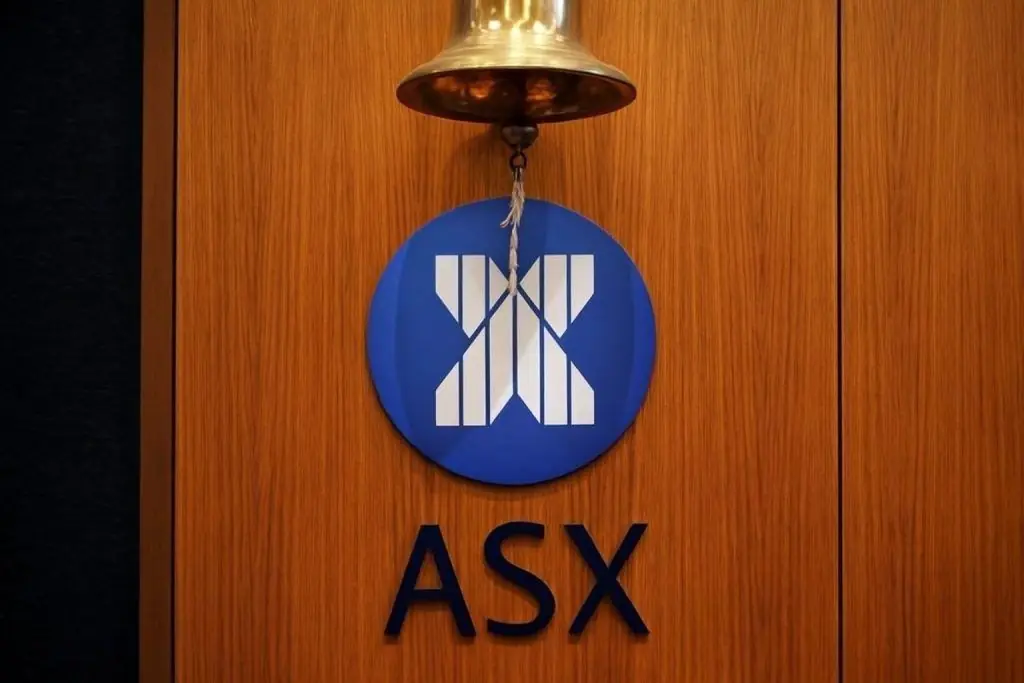London – Sunday 23 November 2025
The UK stock market heads into Monday’s open after one of its choppier weeks since spring, with politics, central banks and commodities all jostling for investors’ attention.
On Friday, the FTSE 100 managed to close higher as traders leaned back into expectations of a December interest‑rate cut from the US Federal Reserve. But the blue‑chip index still finished the week down about 1.7%, while the more domestically focused FTSE 250 slid 2.2%, underscoring how fragile sentiment has become ahead of next week’s UK budget. Reuters+1
At the same time, bond markets have been rattled by Chancellor Rachel Reeves’ decision to drop a planned income‑tax rise, which sent gilt yields sharply higher and knocked stocks earlier this month. Reuters+1 Oil is hovering near one‑month lows after Washington intensified efforts to push a Russia‑Ukraine peace deal, a move that has weighed on energy shares and European defence stocks alike. Reuters+2Reuters+2
Layer onto that a fresh takeover approach by BHP for Anglo American – one of the FTSE 100’s biggest miners – and Monday’s London open suddenly looks busy, even though the economic calendar is relatively light. Reuters+2MarketScreener+2
Here’s what you should know before UK markets open on Monday 24 November 2025.
1. Where the FTSE 100 Stands After Last Week
Despite the latest pullback, the FTSE 100 is still having a strong year overall, up almost 17% year‑to‑date thanks in part to record closes earlier in November when investors cheered signs that the long US government shutdown was about to end. Reuters+1 But the tone has clearly darkened in the last fortnight.
- Weekly performance: On Friday 21 November the FTSE 100 clawed back some of its recent losses, but the rebound wasn’t enough to prevent a 1.7% decline for the week. The FTSE 250 fared even worse, down about 2.2%, extending a long losing streak for mid‑caps. Reuters+1
- Sector moves: Beverages and homebuilders led gains on Friday, while aerospace and defence names dropped to multi‑month lows as hopes for a Ukraine peace framework hit defence valuations. Reuters+2Reuters+2
- Underlying data: A run of downbeat indicators for UK businesses, consumers and public finances ahead of the budget has deepened worries about growth and fiscal sustainability. Reuters+2World Energy News+2
In short, the FTSE 100 is coming into Monday from a position of relative strength on a year‑to‑date basis – but with momentum clearly under pressure.
2. High‑Stakes UK Budget Keeps Markets on Edge
The single biggest domestic story for UK assets remains the Autumn Budget, scheduled for Wednesday 26 November. Reuters+1
Income‑tax U‑turn and gilt shock
Earlier this month, markets reacted badly to reports that Reeves had abandoned plans for an income‑tax increase that investors had assumed would help repair the public finances. The news triggered the steepest one‑day jump in 10‑year gilt yields since July and knocked the FTSE 100 by more than 1% in a single session. Reuters+1
Reeves has since confirmed that leaks about the budget are “not acceptable” and says her priorities remain tackling the cost‑of‑living squeeze, cutting NHS waiting lists and putting debt on a downward path. Reuters+1 But the policy pivot left investors wondering how she will raise the tens of billions of pounds needed to meet strict fiscal rules without hitting growth.
Bond markets want credible consolidation
Big institutional investors have openly called on Reeves to double her fiscal “headroom” against shocks from around £10bn, warning that without more revenue – potentially including income tax – the government risks drifting back into a fiscal squeeze within a year. Reuters+1
Analysts quoted by Reuters and the Guardian say:
- Keeping campaign promises not to raise the main taxes narrows Reeves’ options and may force a patchwork of smaller tax rises – on thresholds, consumption and specific sectors – which could prove more politically palatable but less economically efficient. Reuters+2The Guardian+2
- A disappointing budget that pushes bond yields towards 6% on 10‑ or 30‑year gilts would be “unsustainable” and could even force a secondary budget if markets rebel. The Guardian+1
That backdrop explains why gilts and sterling will remain in focus at Monday’s open, even though the budget itself is still two days away.
3. Sterling and Bank of England Expectations
The budget debate is tightly bound up with interest‑rate expectations.
- UK CPI inflation slowed to 3.6% in October, the first meaningful drop since May, easing some pressure on the Bank of England. Reuters
- Money markets now price roughly a 75–85% chance of a BoE rate cut in December, according to Reuters, as investors bet softer inflation and tighter fiscal policy will give policymakers cover to move. Reuters+1
The currency market is already treating the budget as a key test of credibility:
- Sterling is trading around $1.31 and is on track for a third straight monthly decline versus the US dollar, while also sitting near its weakest levels against the euro since April 2023. Reuters+1
For Monday’s London open, that means:
- Further pound weakness could support internationally exposed FTSE 100 companies whose earnings are in dollars or euros.
- But a sliding currency also signals nervousness around fiscal policy, which can weigh on domestically focused banks, retailers and housebuilders.
4. Global Backdrop: AI Bubble Fears, Fed Uncertainty and Oil at One‑Month Lows
UK stocks won’t trade in a vacuum when the opening auction starts at 8am in London. The global picture is unusually noisy.
AI and tech valuations
The biggest US stock‑market volatility in months has centred on the artificial‑intelligence boom. A detailed Reuters analysis noted that valuations for AI‑exposed stocks have reached levels historically associated with bubbles, even as a stellar earnings report from Nvidia failed to spark a fresh rally. Reuters+1
Key global takeaways:
- The “Buffett Indicator” – overall US market capitalisation relative to GDP – has pushed above 200%, surpassing levels seen at the dot‑com peak. Reuters
- European equities, tracked by the STOXX 600, recently closed at a one‑month low as investors pared back expectations for an imminent Fed cut and fretted about stretched tech valuations. Reuters
The FTSE 100 is less tech‑heavy than US or European benchmarks, but UK stocks still react when global risk appetite swings sharply.
Oil, defence and the Ukraine peace push
Oil prices have slipped to around one‑month lows, with Brent crude down about 1% on Friday, after reports that the US is pushing Ukraine to accept a peace framework with Russia. The prospect of a ceasefire or reduced tensions could increase expected supply over time, pressuring crude. Reuters+1
That has two important implications for Monday’s trade in London:
- Energy giants BP and Shell may face headwinds if crude remains soft, given recent pressure on European oil majors as prices eased. Reuters+1
- Defence stocks such as BAE Systems and Rolls‑Royce recently suffered sharp falls as signs of a renewed push to end the war weighed on the sector, even after a huge rally earlier this year. Reuters+1
If there are fresh headlines on the peace effort overnight, expect volatility in energy and defence names at the open.
5. Monday’s Economic Calendar: Light for the UK, Not for the World
From a pure data standpoint, Monday 24 November is relatively quiet for the UK, with no major domestic releases scheduled in the morning session.
However, there are still external cues for global markets:
- 10:00 (CET) – Germany Ifo Business Climate Index
- 14:30 & 16:30 (US ET) – Chicago Fed and Dallas Fed activity indicators
- 15:59 (CET) – ECB President Christine Lagarde speech MarketScreener+1
None of these is usually as market‑moving as US payrolls or inflation, but after the long US data blackout during the government shutdown and recent rate‑cut repricing, even second‑tier releases can affect global yields and equities.
Looking ahead in the week:
- Tuesday 25 November brings UK CBI retail sales data, alongside a heavier slate of US figures such as producer prices and retail sales. MarketScreener+1
- Recent official numbers already showed an unexpected 1.1% month‑on‑month drop in UK retail sales in October, the first fall since May, underlining fragile consumer confidence ahead of the budget. The Guardian
For Monday specifically, the takeaway is that macro noise will mostly come from overseas, not from fresh UK statistics.
6. Corporate and Sector Stories to Watch at the Open
Anglo American and the miners: fresh M&A excitement
The standout corporate story heading into Monday is in the mining sector.
- BHP has made a renewed takeover approach to Anglo American, according to a Bloomberg report cited by Reuters, roughly a year after walking away from a previous $49bn bid. Reuters
Anglo American is a major FTSE 100 constituent, and any indication that talks are progressing – or being rebuffed – could trigger large moves in AAL shares and spill over into other diversified miners.
Traders will be watching for:
- Any company statements before the market opens.
- Knock‑on effects in peers like Rio Tinto, Glencore and Antofagasta, as investors reassess the sector’s M&A potential.
Banks and gilt‑sensitive sectors
Bank shares have been unusually volatile as investors game out possible windfall taxes, levy changes or regulatory tweaks in the budget.
- After the tax U‑turn was reported on 14 November, banking stocks fell more than 2% in a single session, with NatWest, Barclays and Lloyds all hit. Reuters+1
Barclays and others have warned that the budget’s impact on bond yields could strongly influence housebuilders, utilities, food retailers and property companies in the FTSE 250, which is heavily exposed to domestic borrowing costs and consumer demand. Reuters
Even though no major UK banks are scheduled to report earnings on Monday, price action in gilts and sterling could quickly filter through into this sector at the open.
Retail and consumer names
Recent stock‑specific moves suggest the retail trade will stay in focus:
- ASOS dropped more than 5% on Friday after forecasting annual profit below analysts’ expectations, highlighting ongoing pressure on discretionary spending. Reuters+1
- Travel retailer WH Smith surged earlier last week after announcing the departure of its CEO following an accounting review of US operations, a reminder that idiosyncratic stories can still cut through the macro noise. Reuters
With retail sales soft and the budget expected to contain further tax rises, traders may be cautious on UK‑facing consumer names into Monday’s open.
Media and politics: DMGT buys The Telegraph
Away from the FTSE indices themselves, the UK media landscape is also shifting:
- Daily Mail owner DMGT has agreed a £500m deal to acquire The Telegraph, ending a long‑running saga around the title’s ownership and sparking debate over media concentration and political influence. Reuters+1
DMGT is privately held, so there is no direct share‑price impact. But the deal reinforces the political backdrop into which Reeves will deliver her budget – something markets will be keenly aware of as they assess fiscal credibility and voter sentiment.
7. What FTSE 100 Futures and Last Week’s Close Tell Us
Futures data provide a rough sense of how the market is positioned heading into Monday:
- FTSE 100 futures finished slightly lower on Friday, down about 0.15% on the day after a week of choppy trade, according to historical prices from Investing.com. Investing.com+1
That suggests investors were reluctant to take strong directional bets into the weekend, given the twin uncertainties of the upcoming budget and ongoing debates over global AI and rate‑cut expectations.
The lack of a clear signal from futures means overnight developments – especially any fresh news on:
- The BHP/Anglo American story,
- Ukraine peace efforts and oil, or
- Comments from Fed and ECB officials,
could have an outsized impact on Monday’s opening auction.
8. Key Questions for UK Investors on Monday 24 November
Heading into the new trading week, investors and traders will be asking:
- Will Anglo American dominate the open?
Any confirmation or denial of BHP’s approach could send AAL and the wider mining sector sharply higher or lower. - Do bond markets calm down – or flare up again?
If gilt yields resume their climb, bank and real‑estate stocks could come under renewed pressure, while sterling may weaken further. Reuters+2Reuters+2 - Is the AI‑driven risk sell‑off easing?
A stabilisation in US tech and lower volatility would support global equities, including the FTSE 100. Continued doubts about AI valuations, by contrast, could keep risk appetite fragile. Reuters+1 - How much of the budget is already in the price?
With markets clearly focused on Reeves’ fiscal plans, Monday’s trading may reflect whether investors think the worst‑case tax scenarios are already largely discounted – or not yet fully reflected in gilts, sterling and domestic stocks. Reuters+1
9. How Traders Might Prepare (Without Calling the Next Move)
Every investor’s situation is different, but going into Monday’s UK open, market professionals are likely to:
- Re‑check exposure to UK rate‑sensitive sectors (banks, housebuilders, utilities, REITs) in light of budget and BoE expectations. Reuters+1
- Watch FTSE 100 futures and Asian market moves overnight for an early read on risk sentiment. Investing.com+1
- Track headlines around Anglo American, BHP, oil prices and Ukraine for stock‑ and sector‑specific catalysts. Reuters+2Reuters+2
As always, this overview is informational, not investment advice. But with a high‑stakes budget, a nervous bond market, fresh M&A in the mining sector and global doubts about the AI boom all converging at once, UK investors have plenty to digest before the opening bell rings on Monday 24 November 2025.









